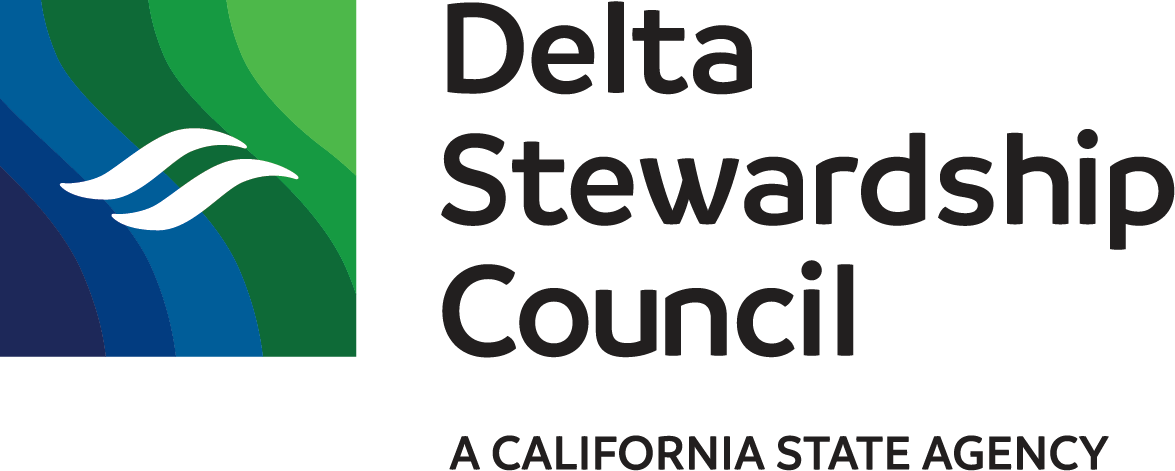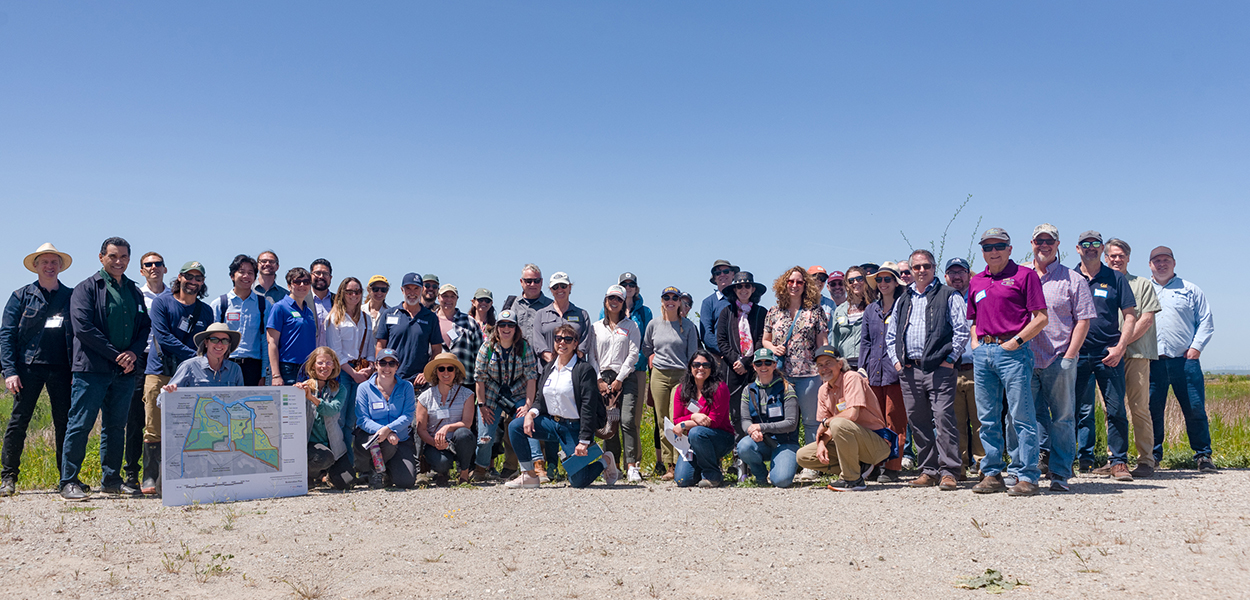
The Delta Plan Interagency Implementation Committee:
A Decade of Progress and Partnerships with More to Come
October 24, 2023
By Delta Stewardship Council Chair Virginia Madueño and Special Assistant for Planning and Science Amanda Bohl
On November 7, leaders from 18 of the state and federal agencies charged with implementing California’s long-term management plan for the Sacramento-San Joaquin Delta – the Delta Plan – will gather to focus on two critically important efforts to advance and improve the way we all manage the Delta: integrated modeling and climate change adaptation strategies. A key focus for the discussions will be on how the committee can collectively strengthen the partnerships needed to move these efforts forward in support of the coequal goals of water supply reliability and ecosystem health for the Delta.
The Delta Stewardship Council established the Delta Plan Interagency Implementation Committee (DPIIC) in 2014. The committee strives to facilitate collaboration for a healthy Delta. It does this by facilitating Delta Plan implementation; focusing on supporting shared national, statewide, and local goals for the Delta; and finding ways to align agencies’ actions to achieve those goals.
Integrated Modeling is Integral to Decision-Making
The Delta is a complex ecosystem that requires diverse models and tools to understand the multi-layered interactions between its environment, water management, and the Delta as a place. With many, and sometimes competing, interests across the region, robust modeling tools that integrate multiple factors (temperature, flow, population, etc.) are needed to forecast the outcome of management and climate scenarios for wildlife habitat, water supply, water quality, economics, social impacts, and others. Increasingly, models are also used as tools for promoting understanding, fostering learning, and advancing action among community members and project partners. Despite these benefits, modeling in the Delta is often diffuse and siloed. The DPIIC can help change this.
The DPIIC has championed integrated modeling with their endorsement of recommendations from the 2016 Science Enterprise Workshop. At the Council, the Delta Science Program has participated in the California Water and Environmental Modeling Forum since 2016 and hosted an Integrated Modeling Framework Workshop in early 2023 that started to lay the groundwork for the implementation of an integrated modeling vision.
The Role of a Collaboratory
The collaboratory is a collection of cyberinfrastructure (model, data, and computing tools), human resources (a director, scientific computing and community engagement staff support), and shared best practices (open-science and quality-assurance standards) supporting modeling. These elements would facilitate linking and integrating different types of models (climate, flows, fish, habitat) and using them for scenario analysis, forecasting, and other management-relevant applications.
Recently, the California State Legislature with state and federal agencies and water contractors, committed a major monetary investment in a multi-entity, independent research project led by the University of California, Berkeley, to kick off the development of a collaboratory intended to support water decision-making in the Delta system. The expectation is that it will develop into a long-term resource for scientists and decision-makers. This initiative will provide trusted, centralized resources for model-based co-learning and community engagement.
While a lot of work has already been done, additional investments and commitments are needed to fully realize a vision for a long-term collaboratory. This is where we need the continued attention and support of the agencies that implement the Delta Plan. During the DPIIC’s November 7 meeting, the committee will hear from a panel on the need for scenario-based approaches for decision-making and how essential partnerships are to developing adaptation strategies.
An Urgent Need for Action on Delta-Specific Climate Change Adaptation Strategies
As the world continues to feel the pressures of climate change and experience hotter temperatures, regional adaptation rooted in science-based decision-making is more critical than ever. We must move quickly, and we must move together to both plan and respond.
The Council took action in response to climate change at its May 2018 meeting, directing staff to begin a two-phase effort:
- Vulnerability Assessment, completed in 2021, that improved understanding of specific regional climate vulnerabilities, followed by the development of an
- Adaptation Plan detailing strategies and tools that state, regional, and local governments can implement to help the Delta thrive in the face of climate change.
Together, these two phases form Delta Adapts: Creating a Climate Resilient Future, a comprehensive, regional approach to climate resiliency that cuts across regional boundaries and commits to collaboration across state, local, and regional levels.
Currently focused on the Adaptation Plan, Council staff has convened a cross-sector Stakeholder Workgroup and four technical focus groups associated with the categories of ecosystems, agriculture, water supply reliability, and flood risk reduction. Through these engagements and others, which began in the fall of 2021, staff has gathered input on a variety of adaptation approaches to consider for the Delta and evaluate the impacts of these approaches.
Throughout 2022, staff used the input received to develop illustrative adaptation scenarios that supported discussions about tradeoffs. While the adaptation scenarios provide a clearer picture of the tradeoffs necessary to meet different objectives, they are not decisions regarding what land uses should occupy specific landscapes in the Delta.
Now, staff is working with a diverse group of interests (including community-based organizations, environmental groups, and reclamation districts, as well as local and State partners) to prepare a draft Adaptation Plan with adaptation strategies and supporting actions across the four focus areas. Staff will identify the range of costs of adaptation and how it can be funded, who will implement the strategies and a timeframe for implementation. A draft Adaptation Plan will be released in early 2024.
At the November 7 DPIIC gathering, we will hear about these draft strategies and discuss potential agency roles and responsibilities. The Council is in a position to provide leadership and coordinate adaptation efforts but relies upon the DPIIC member agencies to utilize their resources and authorities to provide input, commit to strategies, and begin implementation.
Partnerships Matter
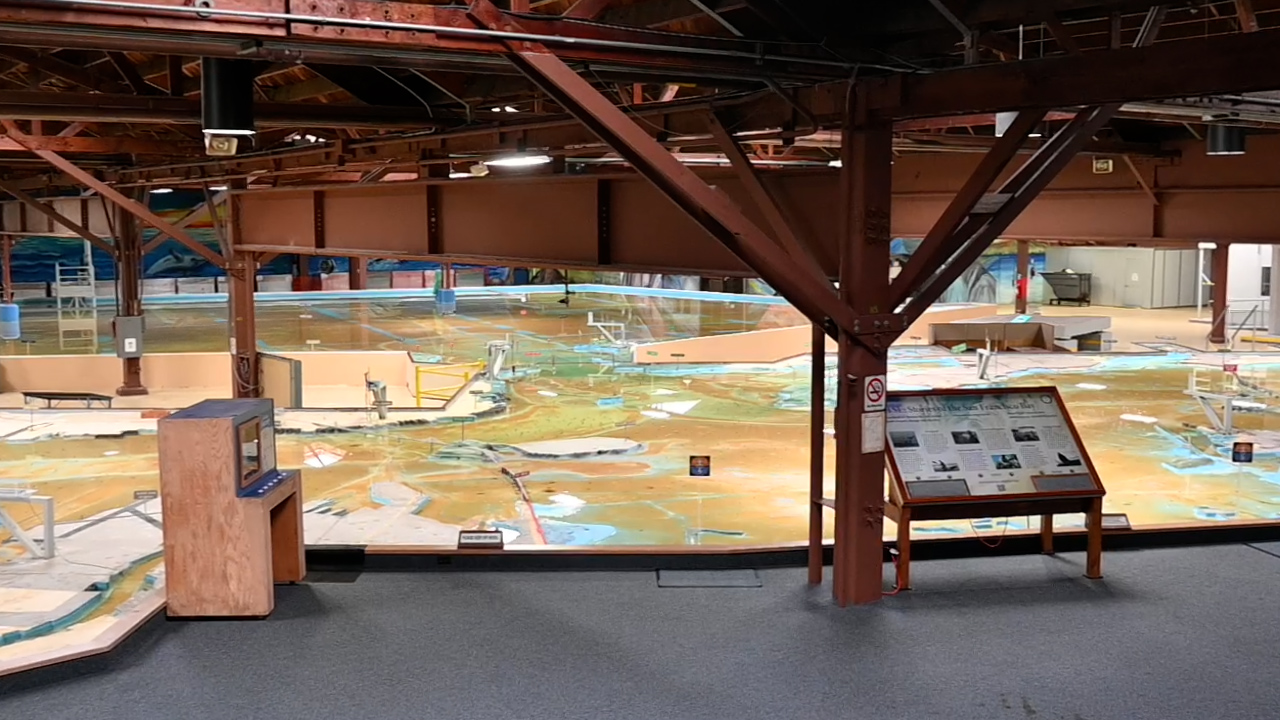
The DPIIC was created to lead implementation of cross-sector regional efforts like a modeling collaboratory and Delta Adapts. We are grateful to our U.S. Army Corps of Engineers partners for letting us gather at the Bay Model Visitor Center in Sausalito. The Bay Model is an ideal venue to discuss modeling and climate change. Used as a scientific research tool from 1958-2000, the Bay Model is a working hydraulic model of the San Francisco Bay and Sacramento-San Joaquin River Delta System and is where modeling for the Delta got its start.
All interested parties are encouraged to attend the meeting, which also includes a tour of the Bay Model early in the agenda. We hope you will consider joining us in person or virtually via Zoom and be part of our partnership and progress!
About the Authors
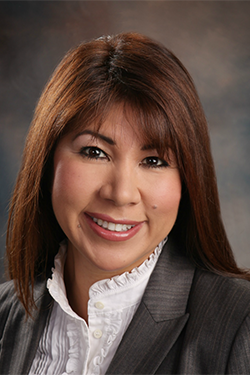
Virginia Madueño
Virginia Madueño was appointed to the Council by Governor Gavin Newsom in 2021. The Council elected her to serve as vice-chair in January 2022 and chair in June 2022. Prior to joining the Council, Virginia was a managing member and president of IMAGEN LLC, managing partner of SanGuard Growth LLC and of LVS Enterprises, an investor and advisor to Alterna Card Services, and president of BeauTea Imports. She is also a former councilmember and mayor for the City of Riverbank and commissioner for California Boating and Waterways. Virginia holds a Bachelor of Arts in communications from California State University, Stanislaus, and is a 2006 graduate of the JFK School of Government at Harvard, National Hispana Leadership Institute.
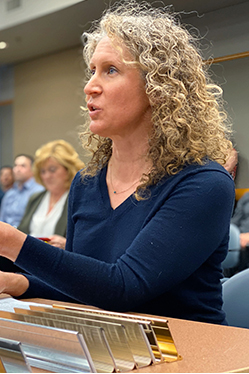
Amanda Bohl
Amanda Bohl was appointed special assistant for planning and science to the Council by Governor Brown in 2018. Prior to joining the Council in 2016, Amanda served as the economic development lead for the Sacramento-San Joaquin Delta Conservancy, program director for the American Land Conservancy’s Central Valley and Foothills Program, and executive director of the Mother Lode Land Trust. She has a Bachelor of Arts in international studies from Southern Oregon University and a Master of Sciences in community development from the University of California, Davis.

